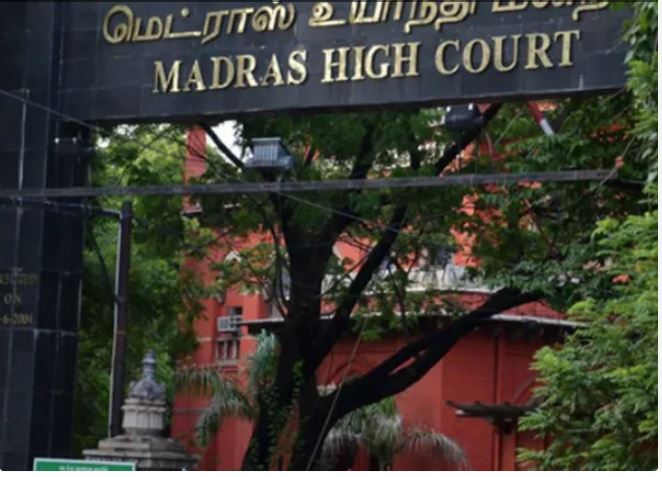The Madras High Court imposed a cost of Rs 10,000 on the petitioner while dismissing a Public Interest Litigation (PIL) seeking a direction to the respondents to consider the representation of the petitioner to construct check dam for every 10 km between integrated Vellore District and Chengalpet District along Palar river to store and utilize the water for public use.
The PIL has been filed by one D. Rajagopal. On perusal of the affidavit filed in support of the petition, the Division Bench of Chief Justice Munishwar Nath Bhandari and Justice N. Mala found that to seek the direction aforesaid, the petitioner has made a reference to the arrangement in the State of Andhra Pradesh, where, according to the petitioner, there exist check dams at every 1.5 km of the river. It is further stated that the State of Karnataka has also constructed many check dams, whereas in the State of Tamil Nadu there are only two check dams to store river water. However, no iota of material has been produced by the petitioner to substantiate the aforesaid averments.
The construction of the check dam is to safeguard the available water resource within its limit. Various factors like selection of appropriate location, spacing, design, hydrological aspects, etc. are considered before proposing such construction. The issue lies entirely in the domain of the executive and based on the policy decision of the government, such construction is made, observed the Bench.
“In the case on hand, learned counsel for the petitioner failed to refer to the quantity of water available in the river, the rate of flow of water, etc., to justify the construction of the check dam at every 10 km of the water flow across the river. It is even without clarifying that if the check dam is constructed at every 10 km, after the first check dam blocking the flow of water how the water will flow to the second check dam and thereon.”
The filing of public interest litigation without proper research and in a casual manner has been deprecated by the Supreme Court time and again. The Apex Court in B.P. Singhal v. State of Tamil Nadu and Others, (2004) 13 SCC 673, while dealing with a public interest litigation, dismissed it on the ground that it lacked material particulars and the averments made were by and large based merely on newspaper reports and not with personal knowledge, cited the High Court.
The High Court went on to observe that in matters of Public Interest Litigation, the Supreme Court has time and again cautioned that the Court has to be satisfied about (a) credentials of the petitioner; (b) prima facie correctness or nature of information given by him; and (c) the information should not be vague and indefinite. In the case on hand, the averments are vague and unsubstantiated.
Further, the High Court relied on the Apex Court in the case of S.P. Anand vs. H.D. Deve Gowda, (1996) 6 SCC 734, held that a person filing a public interest litigation owes not only to the public, but also to the Court that he does not rush to the Court without undertaking any research to raise the issues in the public interest litigation. The Apex Court warned that “a good cause can be lost if petitions are filed on half-baked information without proper research or by persons who are not qualified and competent to raise such issues as the rejection of such a petition may affect third party rights.”
The relief claimed by the petitioner can only be granted by the executive and the courts cannot encroach into the domain of the executive. The petitioner, who is a practising advocate and the State President of Lok Tantarik Janatha Dal, Tamil Nadu, had not made any research and has filed the present public interest litigation in a casual manner for the sake of publicity , held the Court.
For the foregoing reasons, the writ petition is dismissed by the Court with costs assessed at Rs 10,000 to be deposited by the petitioner with the Tamil Nadu State Legal Services Authority within 15 days.
The High Court further directed that the Registrar (Judicial) would ensure the compliance of the said direction and if it is not made, the disposed of petition may be listed before the Court for appropriate order for compliance.


